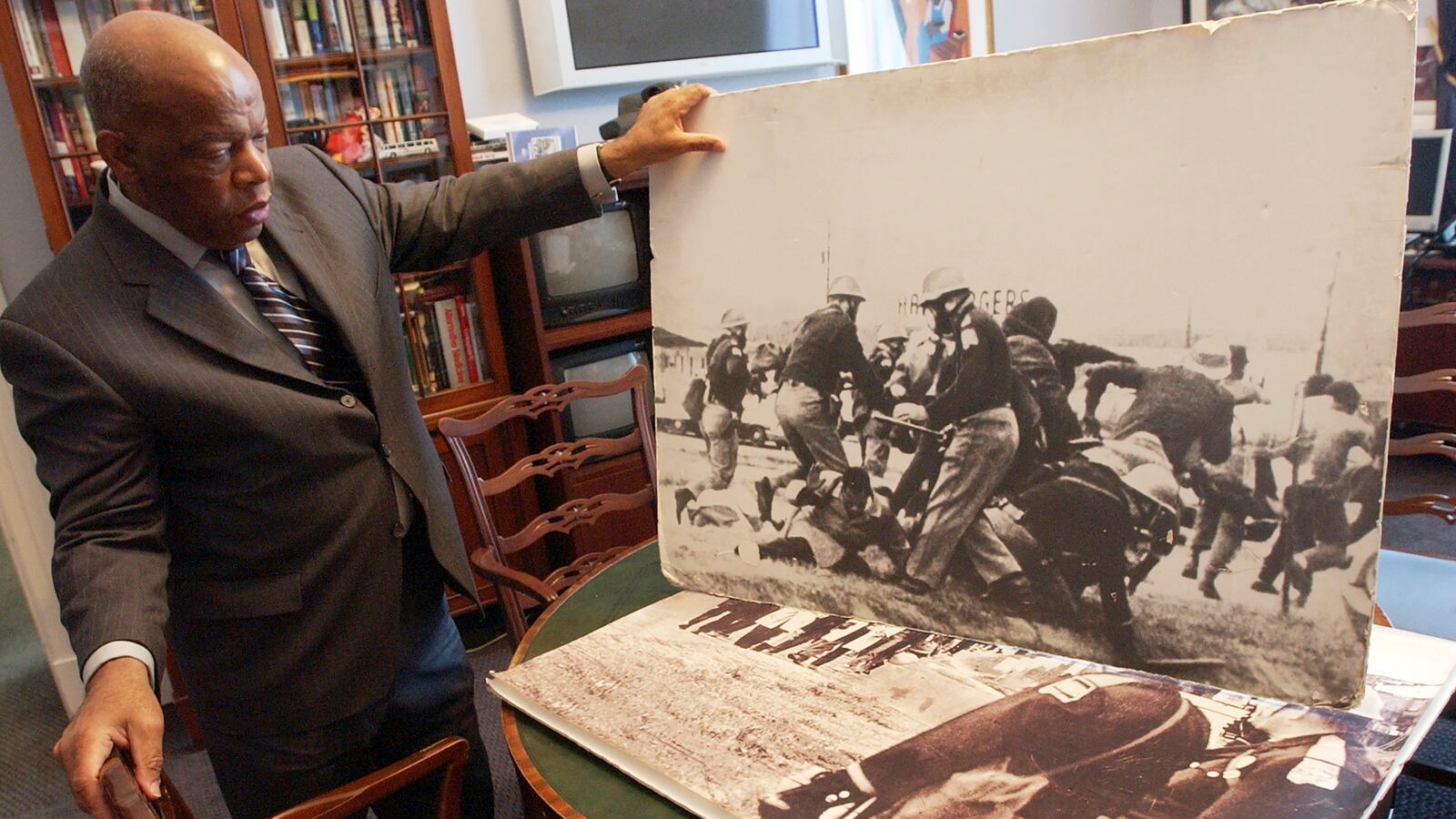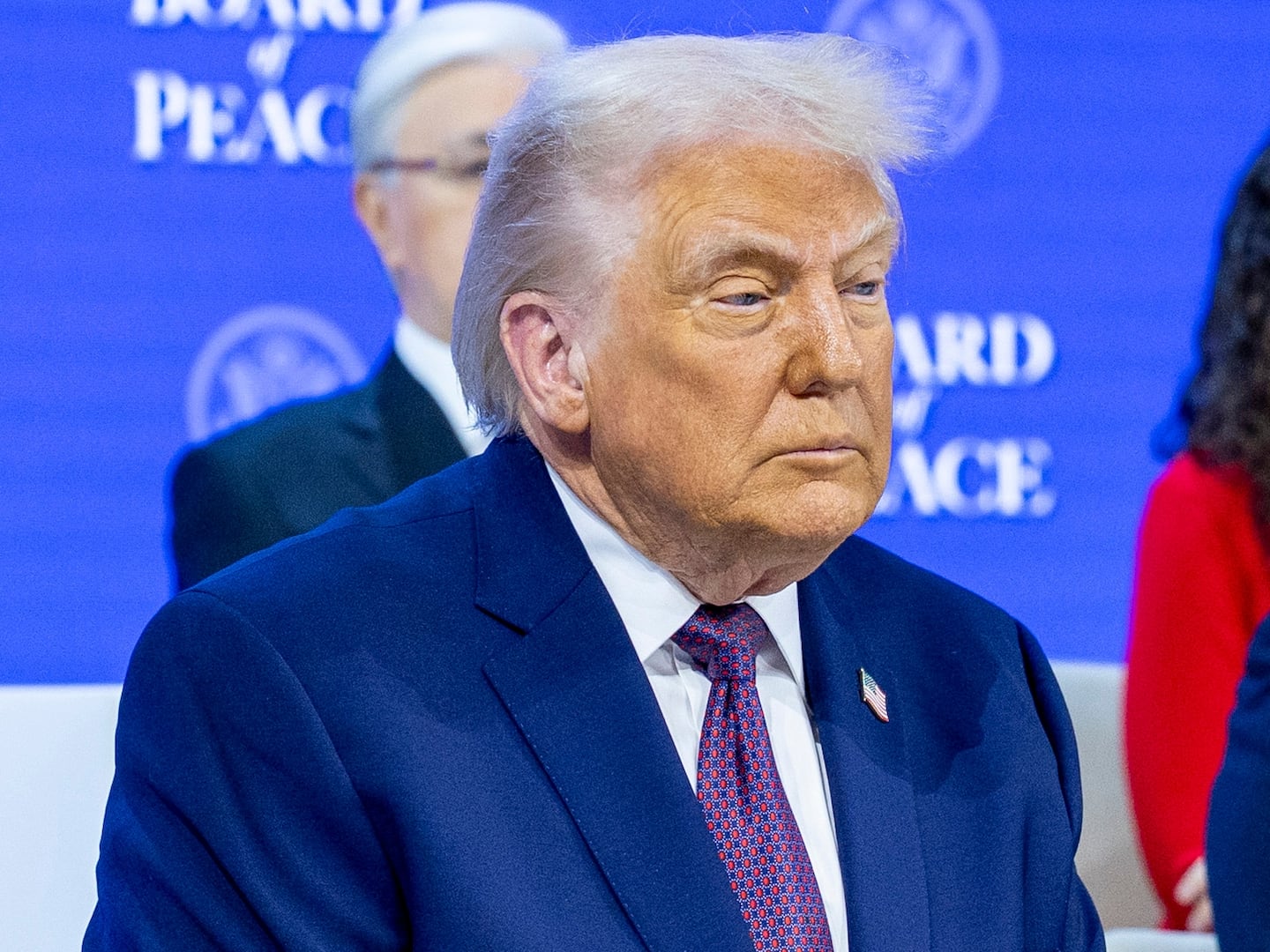In February 2004, a seasoned member of Congress stood on the floor of the United States Senate and lifted his voice for civil rights—specifically, for Section 4 of the Voting Rights Act. “Section 4 provides an important measure of assurance that the full force of the U.S. Government stands behind voting rights for all Americans,” he said. “That is why [my colleague] and I today are offering an amendment to permanently reauthorize section 4 of the Voting Rights Act … [We] want to make clear that America will never renege on the hard-fought gains of the civil-rights movement. We don’t want anyone to fear that their right to vote will ever be taken away. Those shameful days are over.”

Years later, a member of the U.S. House of Representatives went down to Alabama, his college-aged son in tow. The congressman met with Ruby Bridges—the first African-American child to integrate a school in the south. He said that the meeting was a “special moment,” that his son was “deeply moved,” and that when it came to advancing civil rights, he would “return to Washington with a focus on what—together—we can do.”
Heady words, from deep places.
And who were these activists in our United States Congress? Must be progressives, right? Perhaps Sen. Tom Harkin of Iowa, who also sponsored a resolution apologizing for slavery? Or maybe a member of the Congressional Black Caucus, long known for standing up for these types of causes?
No—quite the contrary. In fact, the first was a statement made by then–Senate majority leader Bill Frist—and the colleague he referred to was current Senate Minority Leader Mitch McConnell. The second statement was spoken by House Majority Leader Eric Cantor, Republican from Virginia.
Although separated by nearly ten years and different houses of Congress, Frist, McConnell, and Cantor had one thing in common: they all offered these sentiments after returning from a Civil Rights Pilgrimage to Alabama led by Congressman John Lewis.
Each year, Lewis, in partnership with the Faith and Politics Institute, leads a bipartisan Civil Rights Pilgrimage to Montgomery, Birmingham, and Selma, Alabama. On the pilgrimage, members of Congress and guests visit the storied museums that house the treasures of the civil-rights movement. They worship in churches like 16th Street Baptist Church, where four little girls were killed by a Klansman’s firebomb. And they walk slowly, together, across the Edmund Pettus Bridge in Selma, where Lewis was famously bloodied by a policeman’s baton, during the Selma to Montgomery marches for voting rights.
By all accounts, these pilgrimages are transformative. Norm Coleman, a former Republican senator from Minnesota and a guest on one of Lewis’s trips, said the journey “teaches at a deep level … We learn through the eyes, ears, thoughts, and hearts of others. We learn in a way that not only lasts but changes us in a very fundamental way.”
But for the 2013 pilgrimage, something was different. First, the group of pilgrims was much larger: the Faith and Politics Institute said over 250 people, including 30 members of Congress, departed together to Alabama. Second, the occasion was even more historic than normal: this year marks the 50th anniversary of the March on Washington, and around the country people are preparing to celebrate this touchstone of the civil-rights movement.
And most important, unlike other years, members of Congress would be able to return from the pilgrimage and actually do something about civil rights.
Just a few months after Eric Cantor and 29 other congressmen walked with John Lewis across the Edmund Pettus Bridge, the Supreme Court struck down the core of the very law that Lewis marched for. Writing for the court in a bitterly divided 5-4 decision, Chief Justice John Roberts declared that “our country has changed,” and that old formulas of ensuring the voting rights of vulnerable populations should no longer apply. When he heard the ruling, Lewis was furious. “I didn’t think that on that day when President Johnson signed the Voting Rights Act, that I would live to see five members of the United States Supreme Court undoing what President Johnson did with those pens,” he said.
And hours after the opinion was announced, we learned that perhaps things had not “changed” quite as much as Roberts hoped. On the same day as the court’s ruling, the state of Texas moved forward with a voter ID and redistricting plan than many fear will disenfranchise minority and immigrant voters. Just days later, Republicans in North Carolina advanced a plan to do away with early voting, Sunday voting, and same-day registration—all of which have the potential to dramatically curtail the ability of minorities and low-income citizens to vote. The civil-rights community is bracing itself for which state will move next.
Even in the wake of these chilling developments, Washington insiders think there’s little chance that this divided Congress will move quickly to shore up the Voting Rights Act, returning it to the strength that John Lewis fought for, and for which others died.
To believe that congressional action is possible, we would have to think that Mitch McConnell really does believe that no one should “fear that their right to vote will ever be taken away.”
We would also have to believe that, after his son stood with Ruby Bridges, Eric Cantor meant what he said when he declared that Congress must take a “responsible path forward that ensures that the sacred obligation of voting in this country remains protected.”
Most in Washington aren’t ready to extend that much faith to Republicans in the House and Senate, and as a result they’re declaring the Voting Rights Act all but dead. But I’m not ready to rule them out.
See, there’s a particular power in a man like John Lewis, a place like Alabama, and a trip like the Civil Rights Pilgrimage. It’s hard to stand on the steps of a church where four little girls were killed, and not remember the sacrifices of the civil-rights movement. It’s tough to meet a woman like Ruby Bridges and not want every child in this country to grow up knowing that his or her rights are fully protected. And—having walked across it myself—I can attest that it is nearly impossible to place one foot in front of the other on the Edmund Pettus Bridge and not think of the aching feet who walked it before, while resolving to guard their forward progress with every fabric of your being.
I’m ready to believe that there are a few “civil-rights Republicans” in Congress. I’m ready to take seriously the previously expressed views of Eric Cantor, Mitch McConnell, and others. We’ll know by the end of this Congress whether that faith is misplaced, but I’m praying that it’s not. Because if John Lewis is good enough to march with, he’s good enough to vote with as well.






